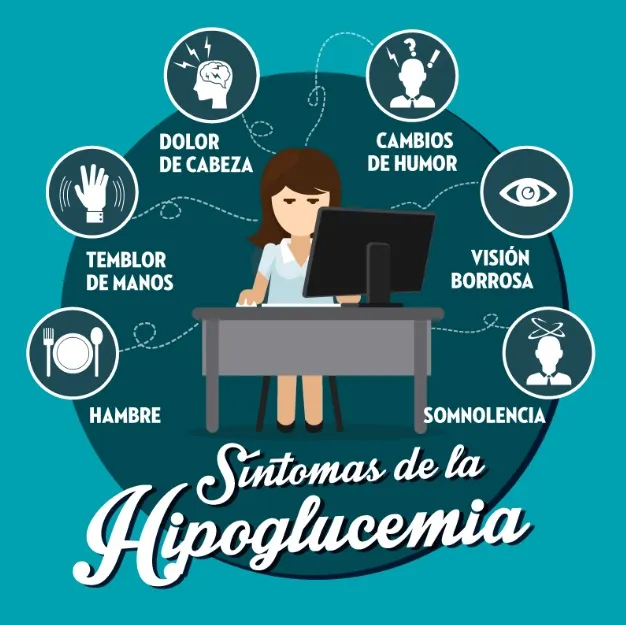Less than 30 percent of patients with diabetes know what to do before an unconscious person for hypoglycemia, according to the results of a campaign (*).
The initiative was developed in two phases: the first, and with the collaboration of Pharma Nord and Diabalance, it was carried out within the framework of World Diabetes Day, on November 14, and focused on the early detection of peopleat risk of diabetes;and the second focused on improving adherence to the treatment and detection of hypoglycemia in patients already diagnosed.
In the campaign, a total of 256 pharmacists from all over Spain participated, with an average of surveys per professional of 12.7, which determined the risk of diabetes in 3,528 users without diabetes and the detection of hypoglycemia in 2,697 people with diabetes.*37, 18 percent of the users surveyed were over 64;25.67 percent between 55 and 64 years;20.93 percent between 45 and 54 years, and those under 45 were 16.22 percent of the total.
Specifically, professionals who participated in the initiative detected a high or very high risk of diabetes up to 863 patients, which represents 24.48 percent of the total.From them, 387 people were derived for their possible diagnosis, which are 44.84 percent of patients with high or very high risk and 10.99 percent of the total respondents.
"It is a forceful fact, which emphasizes the importance of interprofessional communication between toilets and calls to open new communication routes between primary and pharmaceutical professionals, in addition to demonstrating the importance of carrying out multidisciplinary campaigns and the fundamental role of theCommunity pharmacy for professional screening, "explained the coordinator of the Sefac Diabetes Group, José Antonio Fornos.
On the other hand, in the campaign the overweight and obesity levels of the participating population have also been measured, which are risk factors for diabetes.Thus, 2,529 patients (83.80%of the total) presented overweight or obesity, with greater incidence among men (80.26%) than in women (67.33%).
Similarly, a "high" number of users presented a waist perimeter above normal values (81.48 percent in the case of women and 79.85 percent in that of men), despitethat 64.54 percent of men and 62.02 percent of women said they exercise.In addition, of the patients surveyed, 80.87 percent of women claimed to consume fruits and vegetables daily, compared to 71.96 percent of male patients.
Detection of hypoglycemia in community pharmacy
In the second part of the campaign, the focus was on the improvement of adherence to the treatment and detection of hypoglycemia in patients already diagnosed, surveying, of the 256 participating pharmacists, to a total of 3,522 people with diabetes.
In this sense, 65.07 percent of patients claimed to know what hypoglycemia is;almost half (44.01%) believe they have suffered a sugar decrease on occasion;43.97 percent said to know why hypoglycemia are produced;and 67.70 percent knew what to do if it suffered a low blood glucose level.
However, only one third of respondents (29.37%) would know what to do in the event that a person was unconscious due to hypoglycemia."More than two million people enter daily in pharmacies, which demonstrates the role of the community pharmacist both in the detection of diabetes, a pathology that requires a multidisciplinary approach, as when ensuring good therapeutic adherence," heDetailed the president of Sefac, Jesús C. Gómez.
These results have been valued as satisfactory byThe president of the thirst, Anna Novials, because they show the "high" number of cases of diabetes that are still without diagnosing, with the negative consequences for the health that this implies;And, in addition, they confirm that the early prevention and approach to this disease is the task of all health professionals and that from interdisciplinary collaboration it is possible to face in a more effective way to this problem.
"The approach of people with diabetes must be multidisciplinary and has to compromise all professionals who have contact with them. The pharmacist is a professional who, for their knowledge, location and easy access, can collaborate significantly in the diagnosisEarly diabetes, as well as in the detection of people with difficulties in carrying out a correct therapeutic adhesion.that treat people with diabetes, "added the coordinator of the Diabetes Mellitus work group of Semergen, Flora López Simarro.
Finally, the president of the Spanish Diabetes Federation (FEDE), Andoni Lorenzo, commented that this initiative has once again demonstrated the work that remains to be done to ensure that there is no person with diabetes without diagnosing in Spain."From Fede we firmly believe that pharmaceutical professionals must continue to be our allies to achieve it, for their knowledge, experience and closeness to the patient," he has settled.
(*) Organized campaign in hospital pharmacies by the Spanish Society of Family and Community Pharmacy (SEFAC), the Spanish Diabetes Society (SED), the Spanish Society of Primary Care Physicians (Semergen), the Spanish Society of Family and Community Medicine(SEMFYC) and the support of the Spanish Diabetes Federation (FEDE)


